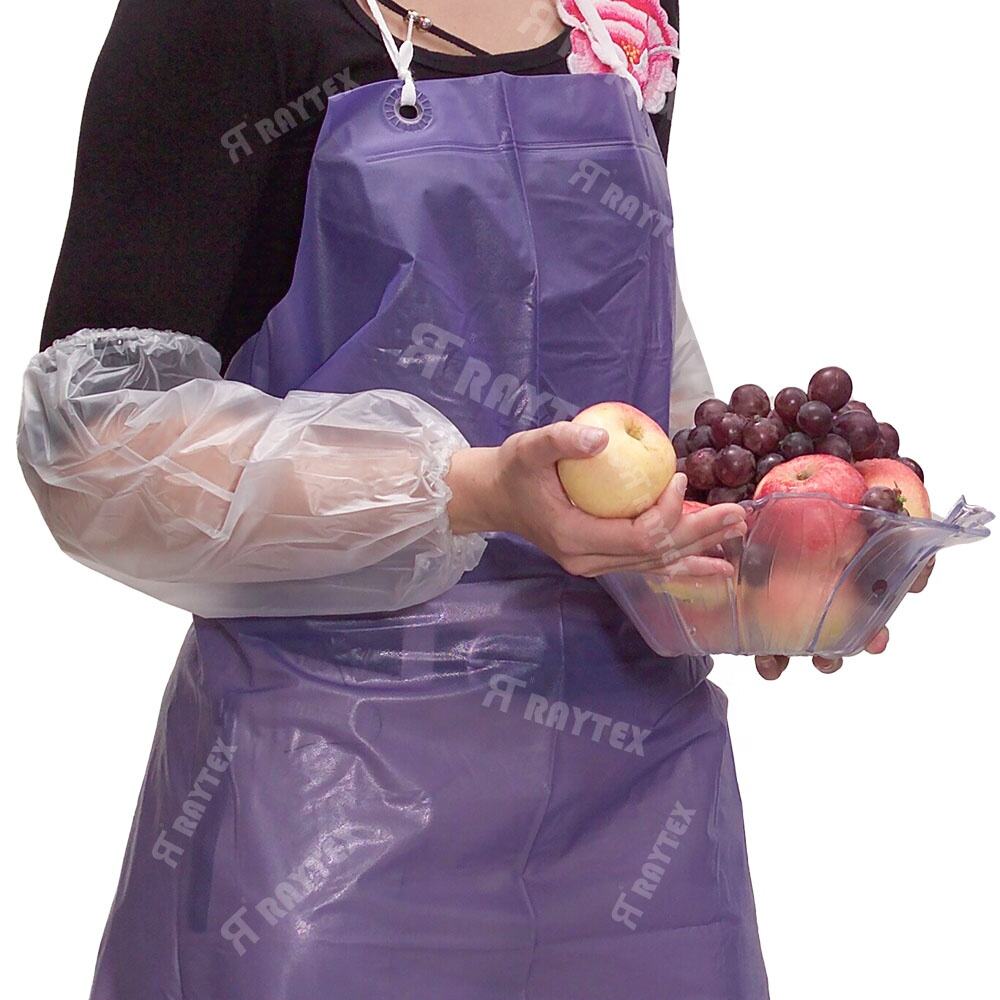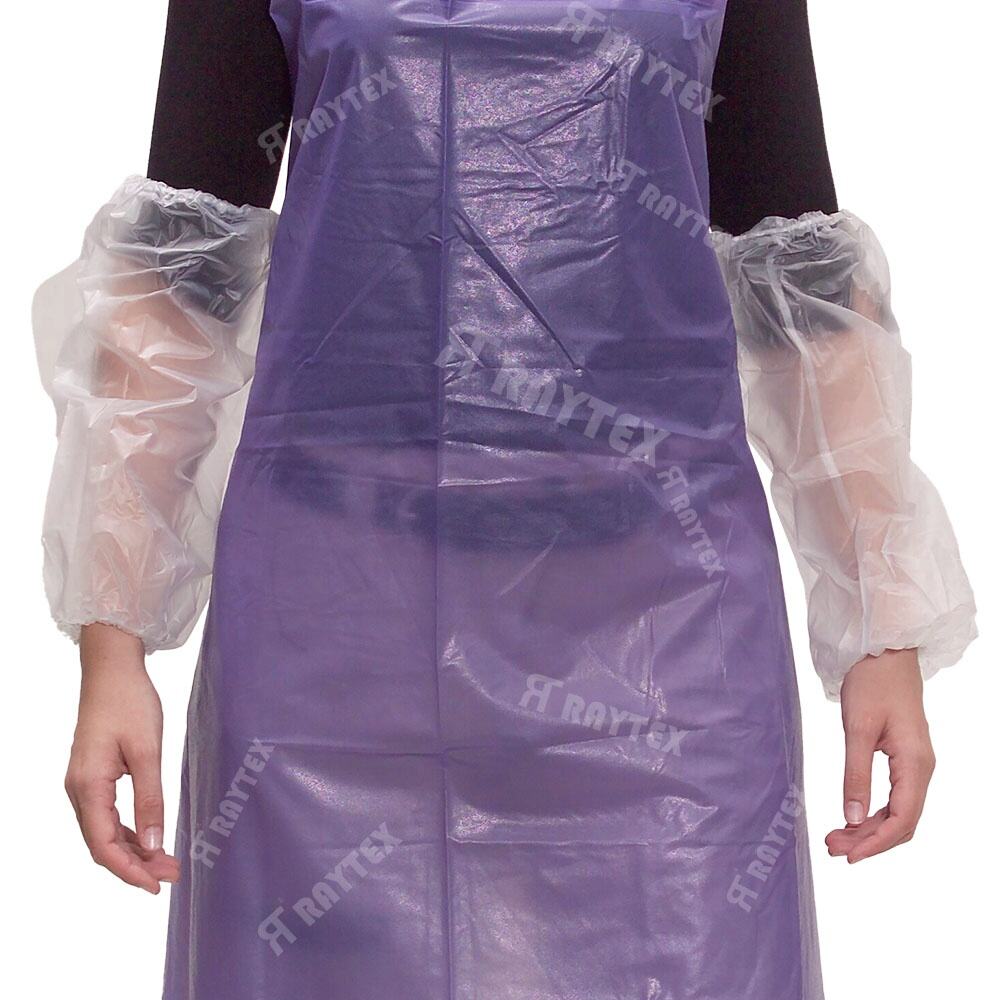Oversleeves for food processing workers are essential components of hygiene protocols in food manufacturing, designed to create a physical barrier between employees' arms and food products, thereby minimizing the risk of contamination. Constructed from high-quality materials such as polypropylene (PP) or polyethylene (PE), these disposable sleeves offer excellent resistance to water, oils, and minor chemical splashes, which are common in tasks like cleaning, seasoning, or handling acidic ingredients. Their lightweight and breathable nature ensures comfort during extended wear, a critical factor for workers operating in temperature-controlled environments for hours at a time. The design typically includes elastic cuffs at both ends, ensuring a secure fit that prevents slippage while allowing unrestricted movement vital for activities such as operating machinery, packaging, or sorting food items. Compliance with global food safety standards is paramount, and these oversleeves adhere to stringent regulations such as CE certification, FDA guidelines, and ISO 22000, ensuring they meet the rigorous requirements of food processing facilities worldwide. Produced in controlled environments, including clean rooms, they are free from lint, fibers, or other contaminants that could compromise food integrity. As disposable items, they eliminate the risk of cross-contamination associated with reusable alternatives, as each pair is used once and discarded appropriately. This aligns with Hazard Analysis and Critical Control Points (HACCP) systems, a cornerstone of food safety management. Customization options, such as varying lengths (40–60cm) and thicknesses, allow facilities to tailor oversleeves to specific tasks—whether full coverage for handling raw materials or lighter variants for packaging. By integrating these oversleeves into daily operations, food processors not only protect workers from irritants but also uphold product safety, ensuring compliance with international markets and fostering consumer trust.


